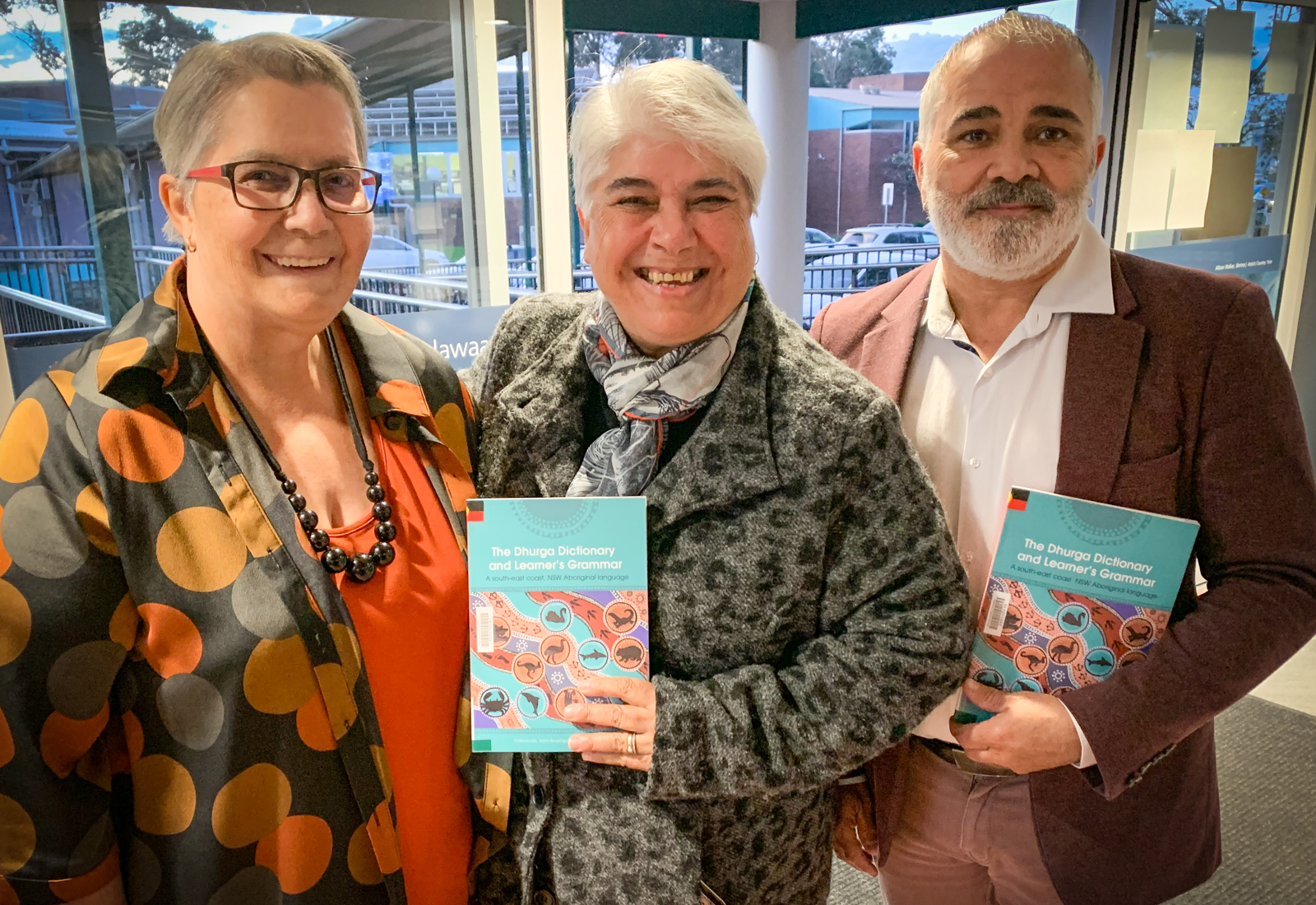‘People were forbidden to speak it for fear of punishment or being separated from their families’ — Patricia Ellis
Trish Ellis is one of the contributors to the Dhurga Dictionary and Learner’s Grammar and is teaching the Dhurga language to students at St Bernard’s Primary School at Bateman’s Bay on the south coast of New South Wales. Trish and her siblings, Kerry Boyenga and Wayne Donovan, started their Dhurga language revival journey by first collecting words from community members and written sources. Being teachers, they set upon a more formal way to revive their language.
In 2002, Kerry Boyenga approached the principal of Broulee Public School on the NSW south coast to ask if she could teach Dhurga as a language other than English.
Broulee Public School agreed and went on to develop a Dhurga language teaching program with linguist Jutta Besold and Vicentia High School. In 2005, Ms Boyenga and her brother Waine Donovan began teaching Dhurga Djamanj (Dhurga talk) at Broulee Public School from kindergarten to year 6.
‘It is very important for our people to have their language and culture because it was taken away’ — Waine Donovan
Dhurga is one of the languages of the Yuin Nation, spoken on the NSW South Coast and Southern Tablelands, from south of Nowra to Narooma and west to Braidwood and Araluen.
With the support of the Australian National University linguist Jane Simpson, two student linguists, Eleanor Jorgensen and Romi Hill, made recordings of the spoken Dhurga words and worked on the dictionary formatting and content with Trish, Kerry and Wayne.
In July 2020, AIATSIS was able to help with the publication of the Dhurga Dictionary and Learner’s Grammar. The publication is the most concise compilation of the Dhurga language to date with more than 730 words as well as cultural knowledge holder and recorder details to validate authenticity. The dictionary is designed to be user-friendly for all literacy levels and readers.
‘This book is a treasure, a gift from those too courageous and determined to let their language and knowledge of country die.’ — Jackie French, author, ecologist and historian
Three hundred and fifty copies of the dictionary were distributed free to local libraries and schools.
